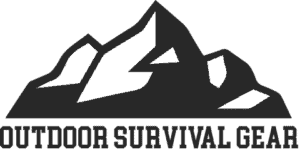Humans Are the Dominant Species
Our species evolved from the plains of Africa has since survived some formidable challenges by the sheer zeal to live on to see the next sunrise. We fought off dangerous predators, became successful group hunters and colonized new spaces. We became the dominant species on this planet on the back of our survival skills and our unique ability to alter our environment to suit us instead of just being hostage to its vicissitudes.We Are Now Victims of Our Own Success
And yet, we are also the victims of our own success. Our agricultural revolution and urban evolution have turned a former hunter-gatherer society into an unhealthily sedentary one. We are born, live and die in our office “ergonomic” chairs. The high-tech economy and the high degree of specialization that it requires has turned us into doctors and engineers with severely eroded survival skills. Most Ph.D.’s can’t tie a bowline knot if they fell off a cliff and were thrown a rope by the rescue team. As sad as the situation of re-teaching a survivor species survivor skill is, there is no getting around it.5 Survival Skills & Resources
Here are five survival skills and the resources that can prevent you from becoming another hiker who succumbed to the wild.- Frame of mind The mind of a survivalist lost in a desert, forest or glacier does not have the luxury of catastrophizing (I know it’s a made-up word ;)). You have the very difficult job of bending the arc of circumstances in your favor and a self-sabotaging mind will put paid to you. You should carry anti-anxiety meds in your survival kit if you tend to get depressed easily.
- Survival kit You must carry a survival kit with the survival tools that can enhance your ability to get water, food, and shelter in case you face a survival situation. The kit must have a first-aid kit with disinfectants and bandages at its core. Next should come temperature-resistant water containers, potable water stocks and food rations. Torches, swiss-knives, Kukri (Nepalese sword for cutting through scrub) and batteries are also essential.
- Reading water clues Have you noticed how African bushmen read the forest like a book or how the matriarch of an elephant family digs at the right spot for water? You will need at least 2.7 liters of water a day if you are a woman and 3.7 liters if you are a man. Your water stocks will peter out in an extended survival situation. So, learn to look for north-facing canyons, broad-leaf trees, morning dew on a rocky outcrop or a water-laden cactus tree.
- Hunting Animal meat is rich in protein and an extended survival situation will require you to hunt. Your survival manual must include information about how to build traps, make a spear point and ambush your prey (e.g. approach your prey upwind so that the wind carries your scent away from it)
- SOS communication Your survival books or manual, an essential part of your kit, should tell you that lighting a fire and covering it with foliage from broad-leaf trees will produce a thick smoke that can broadcast your location. Also, add mirrors you can use to reflect light-sources to your kit.
Related posts:
Survival Skills Training & Survival Training Near You
50+ Survival Books For Your Collection
Emergency Survival Tips Every Girl Needs To Know
23 Survival Guide Tips for the Great Outdoors
What Documents Should I Have On Hand In Case Of An Emergency?
How Many Calories Does The Average Person Need Per Day To Survive?
Backpacking Survival Tips For Hikers
How Much Emergency Food Should I Have In Case of An Emergency?

